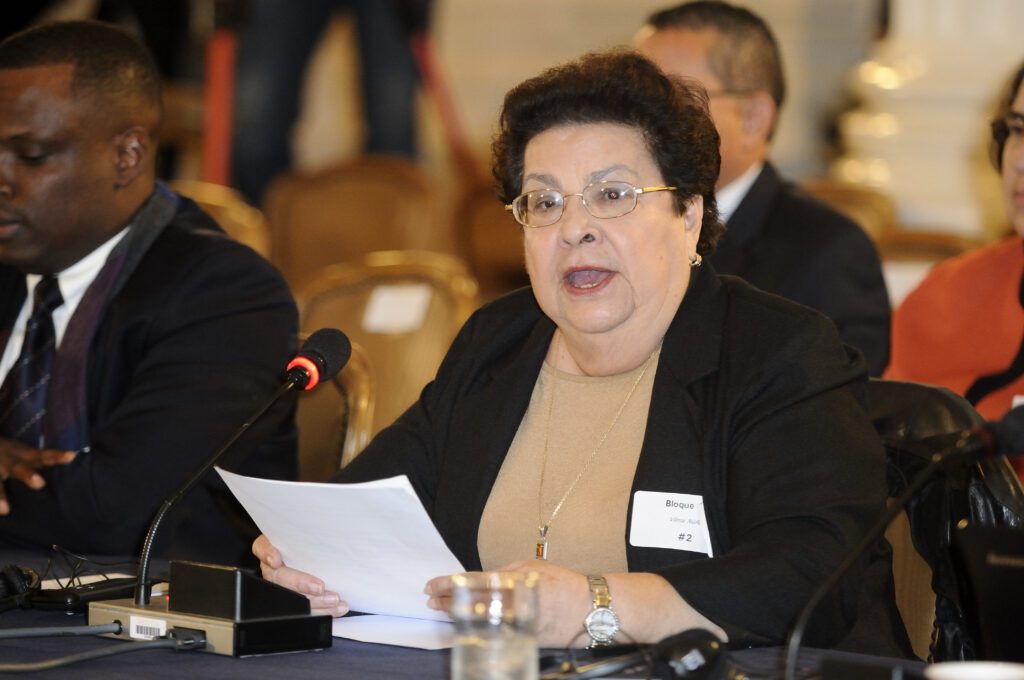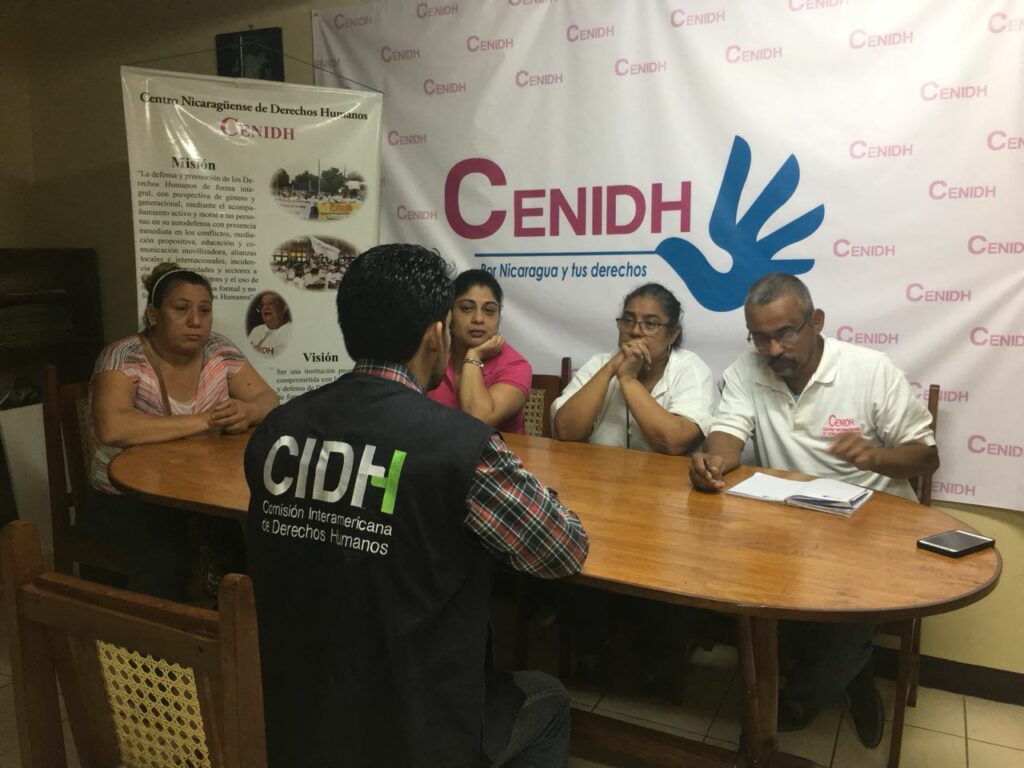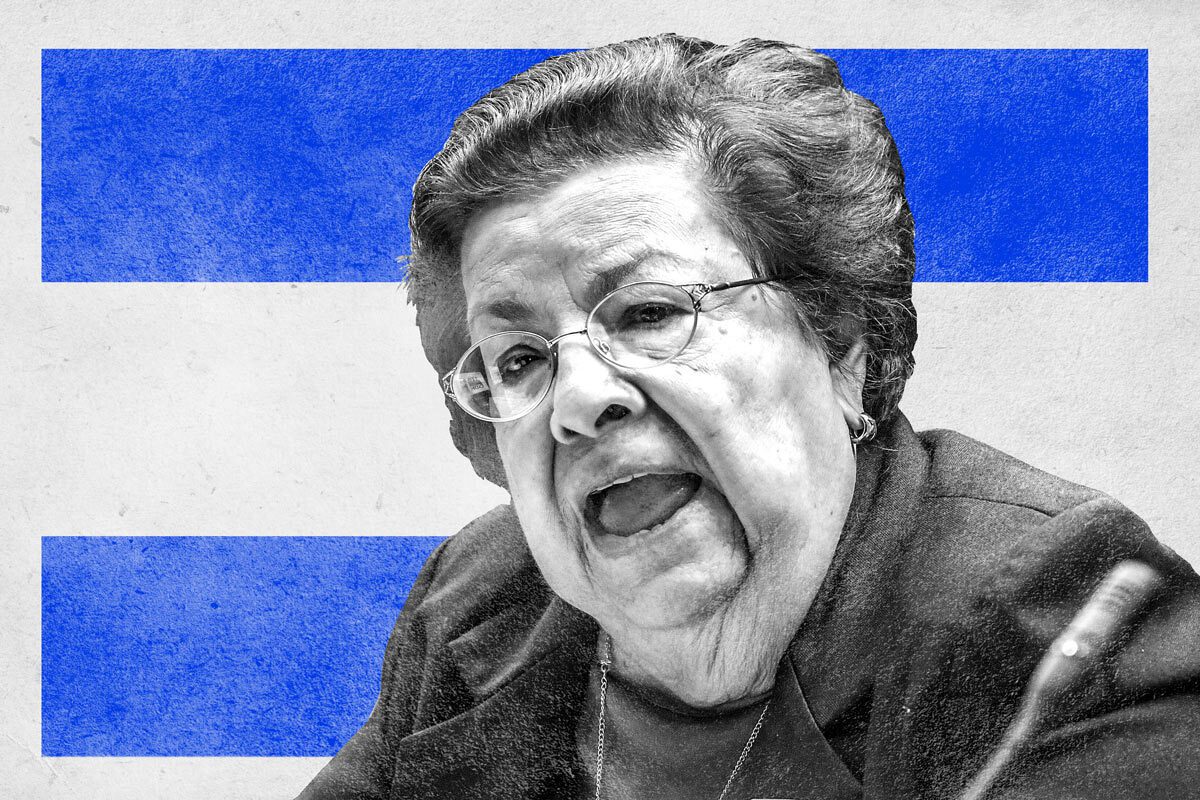Perhaps the image I will never forget of Dr. Vilma Núñez is that of that hot and humid morning on the hill of El Chipote in June 2018, when the veteran lawyer arrived to install herself at the door of the dreaded prison with an umbrella and a chair, with no intention of moving until the police gave information to the families of the first detainees from the social protests of that year.
I was impressed because this was a woman in her eighties, already with walking difficulties typical of her age, but with an endless commitment to the cause she had taken up since her youth: the defense of human rights in Nicaragua.
It was not the first time that the president of the Nicaraguan Center for Human Rights (Cenidh) went to this prison to demand information from the authorities, in a clear confrontation with the dictatorship of Daniel Ortega and Rosario Murillo.
Courage is an insufficient adjective to fully describe Dr. Núñez, rather it would have to be a mixture of commitment and unavoidable ethical principles that the European Parliament nominated her for the Sakharov Prize for freedom of conscience, along with Bishop Rolando Álvarez. Although the prize was awarded to Jina Mahsa Amini and the Women, Life and Freedom Movement in Iran, Núñez’s consideration by the European block highlights her transcendence in the universal defense of human rights.
I have always believed that the image of Dr. Núñez standing at the gate of El Chipote describes her profession very well: a lawyer who decided to “defend and not accuse” in her life.
Her fight against abuses

And she has done so, not only with all the prisoners she managed to get out of El Chipote and other prisons in Nicaragua with the Ortega-Murillo regime, but for more than six decades when injustice knocked on the doors of her family intimacy: she was eight years old when she went to a prison to look for her father, arrested for being an opponent of Somocismo from the Conservative Party.
That feeling against abuses led her to study law and in 1959 at UNAN-León she found student excitement, between the fight for university autonomy and opposition to the dynasty.
The young law student participated in the student march of July 23rd in Leon that left four dead and immediately joined the Committee for the Freedom of Political Prisoners.
That was the beginning of her activism for the defense of human rights. In 1974 she married Leon dentist Otto Escorcia, who has been her companion and accomplice in a life committed to justice and freedom. At that time, Dr. Núñez was already involved with the Sandinista Front guerrillas.
The couple’s house served as a safe house for the guerrillas and she even served as the leader of the then leadership of the Sandinista Front. In May 1979, on the eve of the overthrow of Somocismo, Dr. Núñez was arrested.
Tortured by the National Guard
The National Guard tortured her with electric shocks. They took off her clothes, put a hood over her and laid her down on a wet floor where they shocked her. She was sentenced to ten years, but was soon released from prison and from Nicaragua. The government Junta of the Revolution appointed her vice-president of the Supreme Court of Justice.
With the defeat of the Sandinista revolution at the polls, Dr. Núñez stayed in the party, unlike other intellectuals who left it to form the Sandinista Renovation Movement (MRS). The lawyer believed that it was better to try to fight “from within” against the tyranny that Daniel Ortega was promoting in the Front.
The founding of Cenidh
She was part of the ethics commission that investigated the abuses of “La Piñata” and from that experience Núñez concluded that the worst thing that happened to Sandinismo was not losing the elections with Violeta Barrios de Chamorro in the nineties, but the loss of ethical principles.
At the same time, together with the Jesuit priest César Jérez, she set out to found Cenidh, which became an institution for all the victims of Nicaragua until 2018, when Ortega’s Parliament cancelled the legal status of the human rights center and two years later confiscated its properties.
Núñez said eight years ago, in an interview with the program Esta Semana, that the Sandinista Front was never interested in promoting a human rights organization, especially at a key moment of political transition such as the 1990s. Núñez’s definitive break with Sandinismo occurred after Zoilamérica’s accusation of sexual abuse against Ortega.
Cenidh, open doors for victims

In the absence of a belligerent Human Rights Office in Nicaragua, Cenidh became the mandatory place for all the victims in the country. But in addition, recalls lawyer Braulio Abarca, Dr. Núñez taught them that sitting behind a desk was not the best place to defend human rights. Cenidh and its president were also out in the streets, in protests, and at prison gates.
“I learned that defending human rights is a life choice. So being able to learn how to defend fundamental freedoms, freedom of expression, freedom of opinion, of thought, of the press, was a virtue I learned from her. Her nomination alone for this European Union Prize is really a recognition of her work,” says Abarca, exiled in Costa Rica and today a defender of the Human Rights Collective Nicaragua Nunca Más (Nicaragua Never Again).
Gonzalo Carrión, who worked at Cenidh and now lives in exile in Costa Rica, met Dr. Núñez in 1993 when he arrived as a law intern at Cenidh. Like Abarca, Carrión recognizes that his knowledge and commitment to defending human rights is directly related to Dr. Núñez.
A recognition of her commitment to human rights
“This nomination was based on Dr. Núñez’s trajectory. It is because of her commitment to defending the oppressed that she has been persecuted, but never as now with the current Ortega-Murillo regime, which has focused intense repression against many people who have been defending freedom, dignity and knowing everything that has happened so that justice can be done,” says Carrión.
“I have always said that when the history of the movement for the defense of human rights in Nicaragua is written, it will be inevitable not to mention Vilma Núñez,” he adds.
The Ortega-Murillo family’s last attack on Núñez was the stripping of her nationality in February 2023. Despite this, the lawyer remains in Nicaragua in yet another example of a life of determined opposition to human rights violations and commitment.





